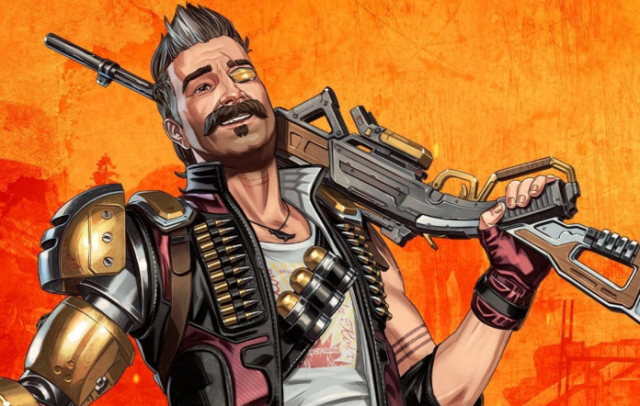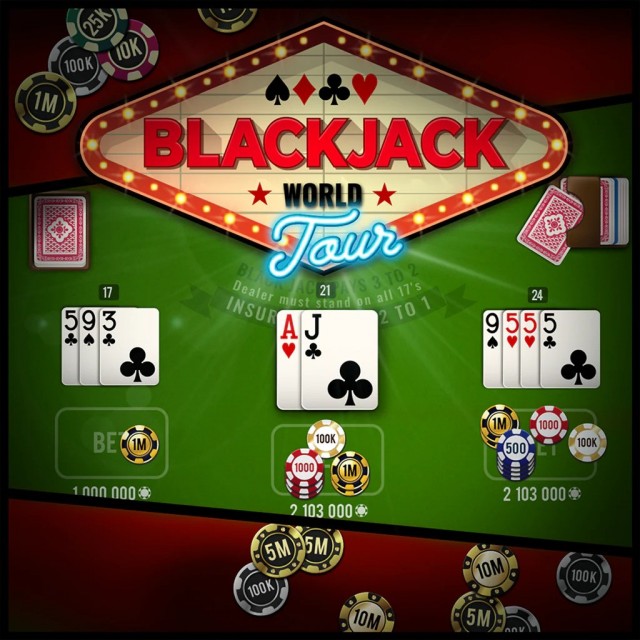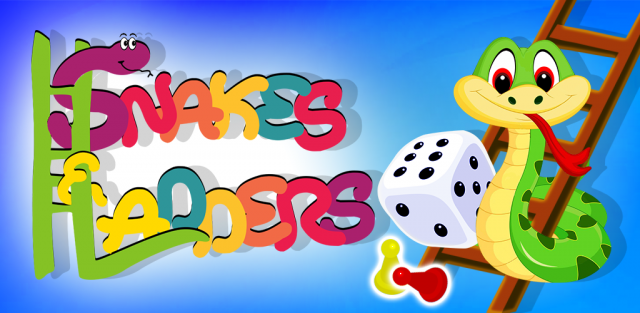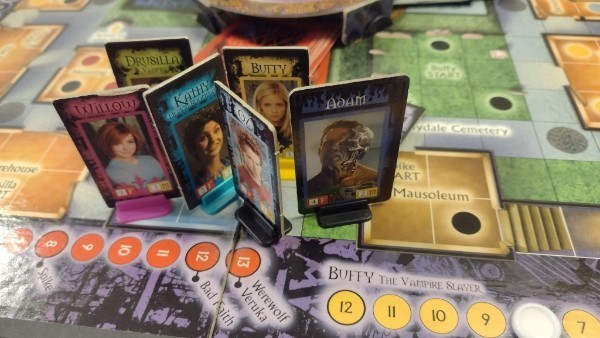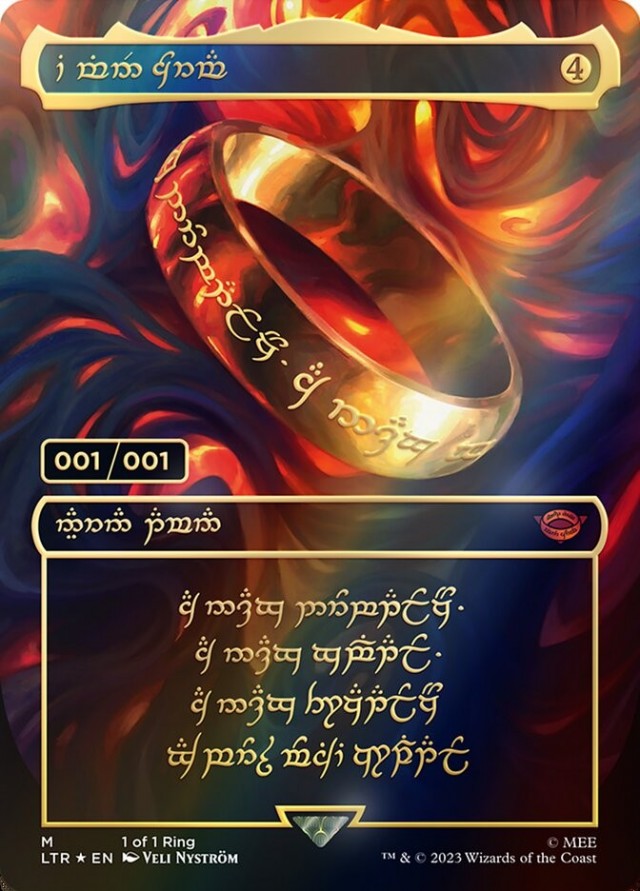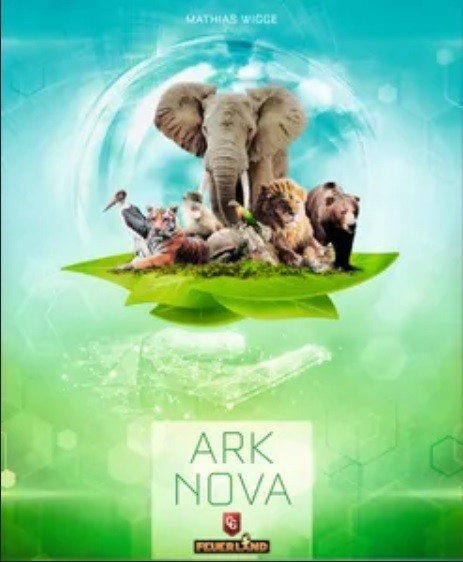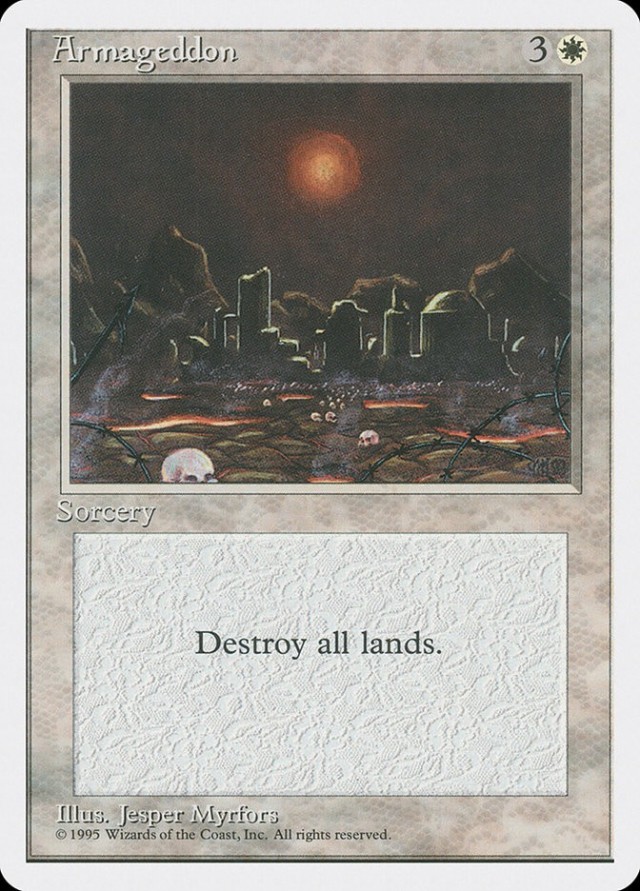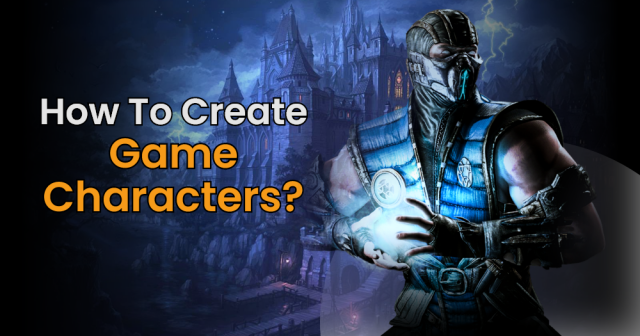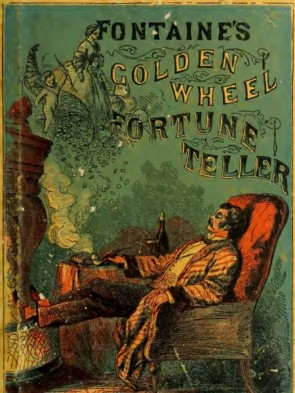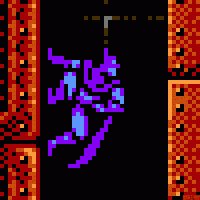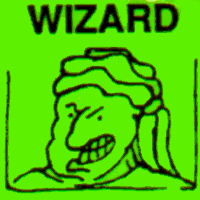Let's take a gander into the future.
Before we get started, I know. I know! To post a listicle on this sober-minded website, and for it to be focused on whole bunch of hyped, unreleased games feels off-brand, if not downright heretical. Plus, the year is already 12% over! But here’s the thing. As humans, we’re (probably) the only animals burdened with the mental construct of the future and the dark promise of our own inevitable deaths. Fun, right? If there’s a silver lining attached to this crushing knowledge, it’s the strange joy of anticipation, the potential of the pleasure-that-might-be. It has been a bit of a week y’all, so forgive me this—for today and today alone, I’m going to swim in the comforting, lukewarm bath of Kickstarter previews, marketing materials, and strained speculation. So, I beg you: let me imagine the games-that-might-be, while hopefully not completely shutting the critical eye that seeketh to separate the sheep from the goats (all for you, dear reader).
10. Vast: The Mysterious Manor
Patrick Leder, Leder Games
Vast: The Crystal Caverns is a game I own, respect, think about constantly, and am still not sure I actually like. Leder Games’ first major release leans hard into asymmetry, creating a fascinating dungeon ecosystem in which each player’s radically different ruleset interlocks with each other’s to make a strange machine. While the game remains radically innovative, its complexities only sometimes lead to fun—a classic case of something to be admired rather than loved. Patrick Leder’s follow-up transports the asymmetrical action to a haunted house and promises to be an easier game to teach and learn. Given that I am a professional educator and teaching Vast: The Crystal Caverns nearly broke me, this is a good thing. We’ll just have to wait and see if the experience of playing the game will live up to its excellent premise.
9. Vampire the Masquerade—Heritage
Babis Giannos, Nice Game Publishing
Friends, I’m sick of legacy games. The promise of evolving gameplay led by player decisions always draws me in, but it’s rare that a game can handle the weight of this kind of prolonged arc—instead, I usually find myself bored after a couple sessions, thinking about the fun we could be having playing something else. That said, I’ve got my eye on Vampire the Masquerade—Heritage, a legacy card game that follows 700 years of vampiric conflict, for a few reasons. First, it borrows its setting from the long running tabletop RPG of the same name, meaning the designer has plenty of fun, gothy material to draw from when building a narrative. Second, it promises a playtime of about half an hour, so getting through the whole thing sounds downright achievable. I remain a bit skeptical—both the designer and the publisher are an unknown quantity to me, and early playtest reports have been mixed—but color me intrigued.
8. Jonathan Strange & Mr. Norrell: A Board Game of English Magic
Marco Maggi and Francesco Nepitello, Osprey Games
Of all the games on this list, this one most resides in the realm of shadows and whispers—other than a scant few pre-production photos, we know almost nothing about what this game will be like. That said, there’s reason to be hopeful: the designers previously worked together on the well-regarded War of the Ring, and Osprey Games has been absolutely killing it with their board game releases lately. Plus, it doesn’t hurt that the game is based on one of my favorite novels of the 21st century, an epic that fuses a comedy of manners with fantasy to create something truly unique. If the game is able to capture the source material’s balance of drawing room humor and dark wonder, this could be a hell of a thing.
7. Football Highlights: 2052
Mike Fitzgerald, Eagle-Gryphon Games
Mike Fitzgerald’s last sports game, the homely-but-lovable Baseball Highlights: 2045, did the impossible: it made this sports agnostic fall in love with America’s pastime. Fitzgerald is a master at taking established game mechanics and adapting them to perfectly fit a particular setting (see: the fabulous Mystery Rummy series). What Baseball Highlights: 2045 did with deckbuilding, Football Highlights: 2052 seeks to do with card drafting and hand management, abstracting a football game into its most exciting moments. Best of all, this game comes concussion-free, and won’t drain the taxpayers’ coffers for a neighborhood-killing subsidized entertainment compound. What’s not to love?
6. Star Crossed
Alex Roberts, Bully Pulpit Games
I’m a huge fan of Alex Roberts’ podcast Backstory, in which she interviews designers, scholars, and other luminaries of the roleplaying community. I’m less familiar with her work as a designer, but the upcoming Star Crossed has caught my eye. Her RPG reminds me of the game Dread, in that its action centers around precarious pulls from a Jenga tower. But instead of creating an atmosphere of horror, it focuses on something far more terrifying—love. In this game, two players act out a forbidden romance, with the stability of the tower representing how in control they are of their feelings. While the subject matter might make your regular RPG group blush, this thoughtful game could offer an adventurous pair of role-players a unique experience.
5. Gandhi
Bruce Mansfield, GMT
GMT’s COIN system has gone from being a scrappy, visionary guerilla to an bona fide war gaming regime—at this point, there are 11 games either released or being developed for the series. I remain a fan of the games’ core mechanics, which emphasize the tenuous alliances and push-pull dynamic of counterinsurgency warfare, but the question remains: just how many of these damn things do we need? Gandhi, though, promises a few new twists to the formula. Namely, this will be the first game in the series to model nonviolent conflict and peaceful resistance. Whether or not this and other new innovations work to keep the series fresh, I’m excited to see how GMT tackles this piece of history.
4. Sleeping Gods
Ryan Laukat, Red Raven Games
To be fair, the likelihood that this game will actually come out this year is pretty close to nil. That said, I’m excited to follow the progress of Ryan Laukat’s latest storybook game, which is apparently many years in the making. We don’t know a ton about this one yet, other than it will utilize a bound atlas for maps (a la Near and Far) and feature an extended campaign meant for one or two players. The reason I care about Sleeping Gods is simple: lots of designers want to tell a great story, but Red Raven is one of the few companies that actually succeeds in weaving a narrative that sticks with me in any substantive sense. Instead of buckets of bland flavor text, Laukat infuses his games with a quirky, laconic charm that makes playing around in his worlds a memorable delight.
3. Fiasco in a Box
Jason Morningstar, Bully Pulpit Games
If you’ve read my interview with Jason Morningstar, this should come as no surprise (notice the subtle self-promotion there?). Fiasco has long been one of my favorite GM-less, story-driven roleplaying games—its tales of normal folk in desperate situations are the perfect fodder for a fun, surprising, and frequently hilarious session of storytelling with your friends. This new box is aimed at making Fiasco even easier to get into, jettisoning its modular playset design and signature black/white dice for a card-based system. It remains to be seen what effect this new approach will have on Fiasco’s core gameplay, but if it gets Fiasco to the table more often, I won’t complain.
2. Sabotage
Tim Fowers and Jeff Krause, Fowers Games
Tim Fowers has been responsible for some of my favorite gaming experiences of the last few years—his games manage to combine technical inventiveness with a breezy, friendly appeal. Having already shown what he can do with the hidden movement genre (cough, check out my Fugitive review), Sabotage finds him teaming up with Jeff Krause to craft a more complex deductive experience. In this game (which early previews have compared to a gamerly Battleship), two teams of players must use a combination of dice rolling, movement programming, and bluffing to outwit their opponents. Early feedback seems positive, so I’m hopeful that Fowers’ hot streak will continue.
1. Imperial Struggle
Ananda Gupta and Jason Matthews, GMT Games
How do you follow up Twilight Struggle, one of the biggest hobby games of all time? If you’re Ananda Gupta and Jason Matthews, you hole up in your secret lair and spend years designing a spiritual sequel behind closed doors, sending out the occasional brief missive but otherwise leaving fans to marinate in their own anticipation. It’s entirely possible that 2019 will come and go without a release of board gaming’s very own Chinese Democracy, but Gupta has been vocal about doing everything possible to get Imperial Struggle out before year’s end. The game itself is still something of a mystery, though it appears the designers are intent on recapturing the feel of Twilight Struggle while incorporating some of the gameplay innovations the last 14 years (!) have given us. As for me, I’m ready to battle over the fate of the 18th century. You know, whenever these guys are ready.
So, whadya think? What did I leave off? Which games on my list should be burned with fire? Which German game from 1990 should I be playing instead of all this new crap? Let me know your thoughts and picks in the comments below.
 Games
Games How to resolve AdBlock issue?
How to resolve AdBlock issue? 